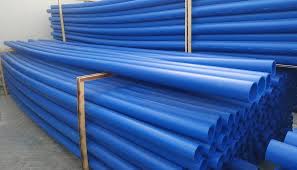Nov . 26, 2024 08:51 Back to list
conduit pipes
Understanding Conduit Pipes A Comprehensive Overview
Conduit pipes play a crucial role in the safe and effective distribution of electrical wiring, telecommunications, and various other utilities. These pipes act as protective channels through which wires and cables can be run, offering numerous benefits including protection from physical damage, environmental factors, and electromagnetic interference.
Types of Conduit Pipes
Conduit pipes come in several types, each designed to meet specific requirements and conditions. The most common types include
1. Rigid PVC Conduit Made from polyvinyl chloride, this non-metallic conduit is lightweight and resistant to corrosion. It is ideal for outdoor installations and areas where moisture might be a concern.
2. Metallic Conduit This type includes EMT (Electrical Metallic Tubing), RMC (Rigid Metal Conduit), and IMC (Intermediate Metal Conduit). Metallic conduits provide robust protection against impact and are often used in industrial applications. They also offer superior grounding capabilities.
3. Flexible Conduit Flexible conduits, which can be made of either metal or non-metal materials, allow for greater versatility in installations where bending and maneuvering around obstacles is required.
4. Liquid-tight Conduit Specifically designed to provide a seal against moisture and liquid exposure, this type is vital in environments prone to spills or in outdoor settings operating in wet conditions.
Applications of Conduit Pipes
The applications of conduit pipes are widespread across various sectors. In residential and commercial construction, conduit pipes safeguard electrical wiring against physical damage, ensuring safety and compliance with building codes. They are commonly used in spaces such as attics, basements, and commercial buildings where wiring must navigate complicated pathways.
conduit pipes

In industrial settings, conduit pipes protect costly electrical and data cables from environmental hazards, chemicals, and physical impacts
. They are essential in factories and plants where machinery operates, ensuring that power supply remains uninterrupted and equipment operates safely.Moreover, in telecommunications, conduit pipes are crucial for routing fiber optic cables and telephone lines. Given the sensitivity and fragility of these cables, a protective conduit ensures they remain intact and functional even in challenging environments.
Advantages of Using Conduit Pipes
The use of conduit pipes offers numerous advantages. Firstly, they provide excellent protection against mechanical impacts and environmental damage. This creates a safer environment for electrical systems and minimizes disruptions caused by faults in wiring.
Secondly, conduits facilitate easier maintenance and upgrades. When electrical systems need to be modified or repaired, having wires housed within conduits simplifies access and reduces the time required for maintenance tasks.
Furthermore, conduit systems can significantly enhance organization within electrical installations. With a structured system in place to run wires, it becomes easier to trace circuits, identify issues, and perform system changes.
Lastly, using conduit pipes can improve the overall longevity of electrical systems. By offering robust protection and reducing wear and tear on cables, conduits can prolong the life of the wiring they encase.
Conclusion
In summary, conduit pipes are an indispensable component of modern electrical and telecommunications infrastructures. Their varied types and applications, alongside the multitude of advantages they offer, underscore their importance in maintaining safety, efficiency, and reliability. As technology advances and environments evolve, the role of conduit pipes will continue to expand, adapting to the needs of future electrical and data systems. Whether in residential, commercial, or industrial applications, conduit pipes remain a fundamental aspect of effective utility management.
-
High-Quality PVC Borehole Pipes Durable & Versatile Pipe Solutions
NewsJul.08,2025
-
High-Quality PVC Perforated Pipes for Efficient Drainage Leading Manufacturers & Factories
NewsJul.08,2025
-
High-Quality PVC Borehole Pipes Durable Pipe Solutions by Leading Manufacturer
NewsJul.08,2025
-
High-Quality PVC Borehole Pipes Reliable PVC Pipe Manufacturer Solutions
NewsJul.07,2025
-
High-Quality UPVC Drain Pipes Durable HDPE & Drain Pipe Solutions
NewsJul.07,2025
-
High-Quality Conduit Pipes & HDPE Conduit Fittings Manufacturer Reliable Factory Supply
NewsJul.06,2025

